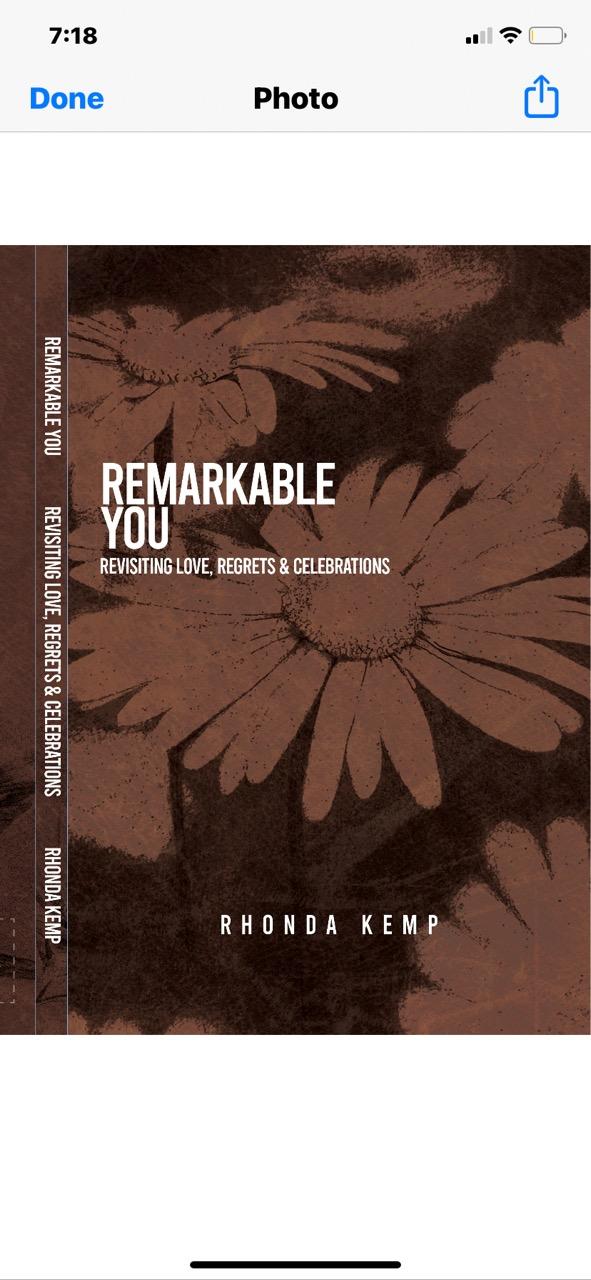DERBY — Rhonda Kemp knows the pain of losing a loved one too soon. Her daughter, Lacy, died of a prescription opioid overdose in 2014, at age 30.
Now Kemp hopes to help others deal with loss through a book and support group. Her 2021 book, “Remarkable You: Revisiting Love, Regrets and Celebrations,” presents writing prompts that invite readers to a place to write down their thoughts.
“It’s a way to talk to a loved one you miss, recall memories you shared,” Kemp said.
Lacy first used pain pills when she was 17 and had undergone two knee surgeries. By her mid 20s, she was battling addiction that profoundly changed her relationships with others. As her mother writes, “Chronic pain and pain killers can alter a person’s brain chemistry, and sometimes I felt like I was talking to another person, not to my daughter.”
Before Lacy’s death, she had been clean for a number of months, was hopeful and talking about joining a rehabilitation group. Unfortunately, when she was 30, a visit to the emergency room for kidney stones left her in pain again — and vulnerable.
According to the Centers for Disease Control and Prevention, about 263,000 in the United States died from overdoses involving prescription opioids from 1999 to 2020. That’s more than heroin, which claims about 13,000 lives each year in our country.
A current problem ravaging the nation is the synthetic, highly potent opioid fentanyl, which is non-pharmaceutical and sometimes mixed into other drugs such as cocaine, methamphetamine and heroin. In 2020, over 56,000 Americans died of overdoses involving synthetic opioids.
Lacy’s death devastated her family. As time passed, Kemp began recording thoughts that she wanted to share or remember on her cell phone. Filled with grief and drained of energy, she found this simple act took mere moments but brought glimmers of peace and some semblance of closure.
The thoughts and memories sparked other ideas and questions, too. Soon the beginnings of a book had formed.
Kemp’s book contains a collection of sentence starters. It’s organized into chapters that frame various stages of the grieving process, focusing on positivity and helping the person journaling continue his or her relationship with their lost loved one.
Kemp also helped start Hope After Loss with four other women, three of whom had also lost children to drug overdoses. Their mission is “to come along beside hurting family members who are grieving the loss of a loved one who has died from overdose,” Kemp said.
The support group is affiliated with Hope is Alive Ministries, which began in 2010 and in which Kemp is active.
In September 2021, Hope After Loss members gathered for their first retreat in Broken Arrow, Okla. Since then, twice-monthly meetings have been held in Wichita, Tulsa and Oklahoma City. In Wichita, Hope After Loss meets at Rock of Christ Church, 147 S. Hillside, the first and third Wednesday of the month at 7:00 p.m. More information can be found at www.hopeisalive.net.
Kemp’s book is available at Watermark Books and through Amazon.
Contact Julie Hying at hyingj@usd385.org.









